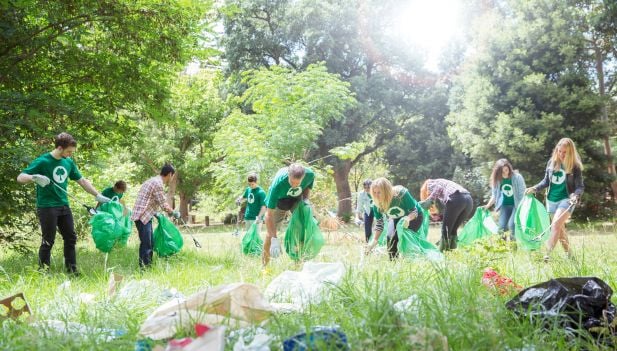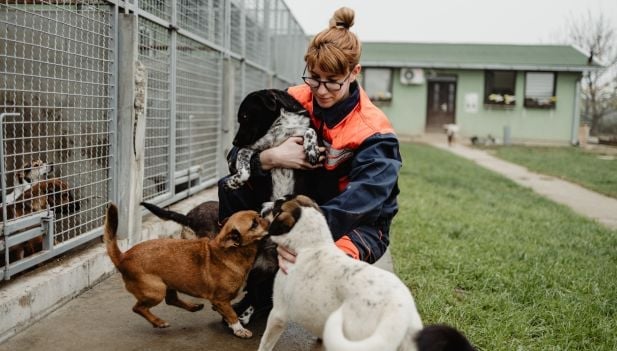Neil Dunk, Team Manager, 24/7 Health Support Team

Unpaid, meaningful help through volunteering has been positively impacting communities and causes in Britain since the 12th century. Historically rooted in the military and health care, volunteering has evolved into endless opportunities to give back and make a difference.
While there’s no financial reward, the impact of volunteering is priceless – and not just for the charities and organisations receiving your support. The health and wellbeing benefits are vast and to be enjoyed as part of the process. For many, it’s been transformative across their physical, mental and emotional health – regardless of age.

For example, when you’re kind to another person, your brain’s pleasure and reward centres are activated, as if you were the recipient of the good deed – not the giver. This phenomenon is called the ‘helper’s high’1.
It's easy to see how kindness benefits us psychologically – boosting mood, compassion, empathy and self-esteem. A single act of kindness each week is also known to reduce loneliness, social isolation, social anxiety and promote relationships in your local community2.

There’s growing research that your body benefits too, with kindness associated with lower blood pressure and levels of the stress hormone cortisol3. It also triggers the release of oxytocin, known as the ‘love hormone’.
According to Tyler VanderWeele (co-director of the Initiative on Health, Spirituality, and Religion at the Harvard T.H. Chan School of Public Health), volunteerism is related to kindness and is connected with living longer and functioning better as we age3.
Volunteering can help you focus beyond your own worries and anxieties, instead looking to the needs and happiness of others. Being kind can create a sense of peace, calm, and compassion within ourselves.
Volunteer stories
With this in mind, we caught up with a variety of volunteers to hear more about why they volunteer, how they got into it, as well as the personal health and wellbeing benefits they’ve experienced as a result.
Select the story to read more.
Sally's story
“As well as supporting a charity that’s close to my heart, I feel happy to have helped. On a practical note, volunteering’s taught me how to advance my computer skills.”
Kerrie's story
“Volunteering reminds me of what truly matters: connection, community, and compassion. It’s one of the few things that truly lights me up.”
Sue's story
“Volunteering gets me out, meeting lots of lovely people, and gives a real purpose to my life.”
Bingzi’s story
“Volunteering has helped me connect with kind, warm-hearted people, which has made me feel more engaged and open, especially as an international student.”
Gaynor’s story
“I love that it’s flexible for people to drop in and out as and when they like, and to uptake opportunities that fit in with their life.”
Andrew’s story
“It helps reduce stress and anxiety and gives me the opportunity to think through situations over more time. I also practice mindfulness more frequently outdoors.”
Melanie’s story
“Volunteering has taught me about being a team player, learning new skills and challenging myself to accomplish tasks.”
Clare’s story
“It’s nice to volunteer, I always feel appreciated when I help out. I volunteer as often as I can.”
Sally’s story
“It’s taught me compassion. I’m a different person to how I used to be – much calmer, more patient and more compassionate. I want to be doing things to help people.”
As you can see, volunteering your time and energy (however much you can spare) goes a long way for both society and your health and wellbeing. Will you be giving it a try?
References
- The Helper’s High – National Library of Medicine
- One act of kindness per week improves wellbeing for individuals, communities – Brigham Young University
- The healing power of kindness – Maureen Salamon, Harvard Health Publishing
